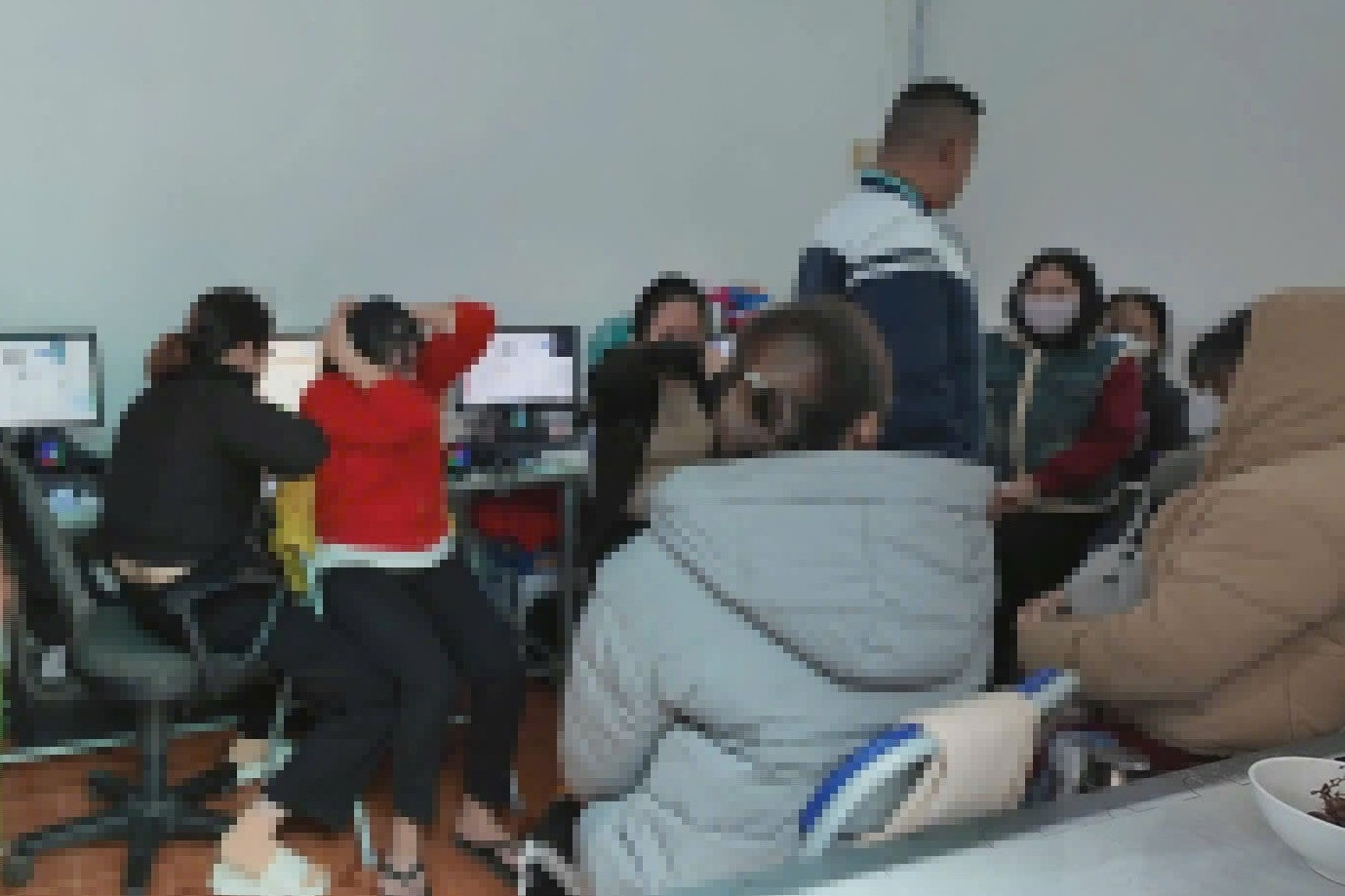On January 22, Lieutenant Colonel Kieu Manh Hung, Chief of Krong Pak District Police, confirmed that the police, in collaboration with several units from Dak Lak Provincial Police and the Department of Cybersecurity and High-Tech Crime Prevention (under the Ministry of Public Security), had exposed and arrested members of the network.
Details of the operation

The Dak Lak Provincial Police have charged and detained four individuals connected to the case: H’Nguyen Nie Kdam (born 1984), Nguyen Thanh Nhan (born 1998), Nguyen Tran Trung Hieu (born 2000, all residing in Ea Phe Commune, Krong Pak District), and Nguyen Thi Bich Ngoc (born 1989, residing in Ben Tre City, Ben Tre Province).
The operation began after authorities identified a group in Krong Pak District using advanced technology to defraud people on a massive scale. Following investigations, police tracked, investigated, and processed 57 individuals involved in the scheme.
The investigation uncovered a highly organized scheme. Authorities seized 45 computers, 63 mobile phones, 41 motorbikes, and 180GB of data, along with other evidence.
According to confessions, the operation started in early 2024 when H’Nguyen Nie Kdam connected with an unidentified individual through Telegram. This individual recruited her to lead the scam network.
Kdam then used social media to recruit staff and organize operations. The scheme involved receiving personal information - such as names, phone numbers, and addresses - from the anonymous recruiter. This information was passed to her staff, who used it to contact victims.
How the scam worked

Employees, under Kdam's guidance, utilized specialized software for internet-based calls to evade detection by authorities. The team operated on high-speed internet connections and followed a scripted strategy.
Posing as employees of a fake TikTok Technology Company, they contacted victims, claiming they had won “free gifts” from TikTok. Victims were asked to provide personal information to receive the “zero-dollar” gifts.
Victims were also lured into work-from-home schemes, promising payment for activities like watching videos or liking posts to increase social media engagement.
Once trust was established, the scammers introduced tasks labeled as “e-commerce missions,” where victims were promised 20–30% commissions for purchasing products from the “company.”
Initially, small transactions were honored, with victims receiving both their principal and promised commissions. However, larger transactions were met with excuses - such as procedural errors - and victims’ accounts were locked, allowing the scammers to steal their money.
The scope and consequences
Every day, the network illegally used information from approximately 50,000 individuals, making over 100,000 scam calls across Vietnam. The total amount stolen reached billions of VND.
Employees were paid 30,000 VND (approximately 1.30 USD) per successful call, earning an average of 300,000–600,000 VND daily. The group in Dak Lak alone received over 200 billion VND (approximately 8.4 million USD).
Dak Lak Provincial Police urge anyone victimized by this group to contact Investigator Pham Tu Anh at 0966.639.569 or the Dak Lak Provincial Police Investigation Department at 58 Nguyen Tat Thanh Street, Buon Ma Thuot City (telephone: 0694.389.131 or 0694.389.133) to assist in resolving the case.
Hai Duong